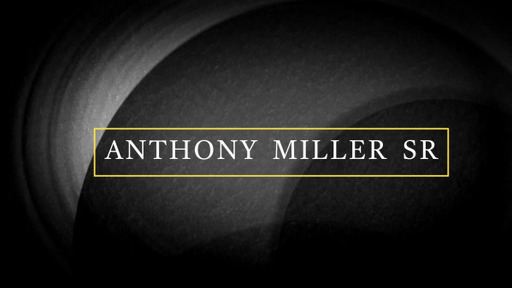Stop Protesting and walk in Victory

Sermon • Submitted • Presented • 45:43
0 ratings
· 7 viewsFiles
Notes
Transcript
When Man’s Intentions Get in God’s Way
Text: Mark 8:31–33
31 And he began to teach them that the Son of Man must suffer many things and be rejected by the elders and the chief priests and the scribes and be killed, and after three days rise again.
32 And he said this plainly. And Peter took him aside and began to rebuke him.
33 But turning and seeing his disciples, he rebuked Peter and said, “Get behind me, Satan! For you are not setting your mind on the things of God, but on the things of man.”
Introduction
Have you ever been absolutely convinced you were right—only to discover later you were completely wrong? Maybe it was a decision, a judgment call, or a conversation where you said something bold… and then realized how off you really were.
That kind of moment is humbling. But when we find ourselves correcting Jesus—when we think we know better than God—that’s more than humbling. That’s dangerous.
Peter had just made the great confession: “You are the Christ.” He got it right! But in the very next breath, he gets it terribly wrong. He rebukes Jesus for talking about suffering and death. Peter was trying to protect Jesus—but ended up opposing God’s entire redemptive plan.
You see, Peter loved the idea of a crown, but not a cross. He wanted a conquering King, not a suffering Savior. And so he protested.
Today, we’re going to look closely at Peter’s protest and Jesus’ strong rebuke. This moment shows us just how easy it is to believe in Jesus—but resist His mission. And when we reject the cross, we don’t just make a theological error—we actually align ourselves with Satan himself.
Subject: Peter’s protest of Jesus’ teaching
Modifier: reveals the danger of rejecting the way of the cross.
Textual Idea: Peter rebuked Jesus for predicting His suffering and death, only to be sternly rebuked himself.
Sermon Idea: When we reject the necessity of Christ’s cross, we align ourselves with Satan, not God.
Interrogative: Why did Peter protest, and how does Jesus respond to such rejection of the cross?
Let’s walk through this story and discover five truths about Peter’s protest—and what it reveals about the human heart when it resists the cross.
Let’s walk through this story and discover five truths about Peter’s protest—and what it reveals about the human heart when it resists the cross.
I. The Cause for the Protesting (Mark 8:31–32a)
The first thing we see is what triggered Peter’s protest: it was the teaching of Jesus.
Mark tells us in verse 31 that Jesus began to teach the disciples that the Son of Man must suffer many things, be rejected by the elders, be killed, and after three days, rise again. This wasn’t just one comment—Jesus was teaching them this openly and repeatedly.
Peter’s protest was prompted by four shocking truths in Jesus’ teaching:
• First, the suffering: “The Son of Man must suffer many things.” Not just rejection, but many things. This wasn’t the future Peter expected.
• Second, the scorning: “Rejected by the elders, chief priests, and scribes.” These were the religious leaders. If they rejected Jesus, how could He be Messiah?
• Third, the slaying: “And be killed.” That’s the word that crushed Peter’s hope. A dead Messiah? That didn’t fit his theology.
• Fourth, the supernatural: “After three days, rise again.” Jesus did give hope—but the disciples were too shocked to hear it.
And then verse 32 says, “He said this plainly.” No parables. No mysteries. Just clear, direct truth. And that upset Peter.
Illustration:
Imagine you’re following a popular political candidate. You’re convinced he’s going to win, bring change, and take over. Then, out of nowhere, he says, “Actually, I’m going to prison, and I’ll be executed.” You’d be stunned! That’s how Peter felt.
Argumentation:
Notice the key word in verse 31: “must.” Jesus must suffer. This wasn’t optional. It wasn’t a plan gone wrong. This was the divine plan from eternity.
Isaiah 53 had already foretold the Suffering Servant. Psalm 22 described the crucifixion in detail. But the disciples didn’t see it.
17 I can count all my bones— they stare and gloat over me;
18 they divide my garments among them, and for my clothing they cast lots.
5 But he was pierced for our transgressions; he was crushed for our iniquities; upon him was the chastisement that brought us peace, and with his wounds we are healed.
6 All we like sheep have gone astray; we have turned—every one—to his own way; and the Lord has laid on him the iniquity of us all.
7 He was oppressed, and he was afflicted, yet he opened not his mouth; like a lamb that is led to the slaughter, and like a sheep that before its shearers is silent, so he opened not his mouth.
Not only did Jesus had to suffer, but He had to be Killed!
✅ Divine Passive Example: “be killed”
• Greek: καὶ ἀποκτανθῆναι
• Form: Aorist passive infinitive of ἀποκτείνω (to kill)
• Translation: “to be killed”
🧠 What is the Divine Passive?
The divine passive is when a verb is in the passive voice but the subject (or agent) who performs the action is not named because it is understood to be God. It’s a reverent way of saying “God did this” without explicitly naming Him.
💡 Why is “be killed” a Divine Passive?
In Mark 8:31, Jesus says He “must… be killed.” While human agents (like the Sanhedrin and Roman officials) are involved, Jesus is pointing beyond them to the sovereign will of God. The divine necessity (δεῖ) earlier in the verse—“it is necessary”—suggests that this is all according to God’s plan, not merely human conspiracy.
Commentaries and scholars (e.g., NICNT, BECNT, WBC) affirm that this passive verb reflects God’s will being carried out—thus a divine passive.
🔥 Theological Weight:
Jesus’ death is not a tragic accident; it’s a divinely ordained mission. Even the phrase “must suffer” (δεῖ) points to the necessity of fulfilling God’s redemptive plan, which includes the divine passive “be killed.”
Application:
Let me ask: Do you accept all of Jesus’ teaching—or only the parts you like? Are you willing to follow a suffering Savior? Or do you only want the Jesus who blesses, not the Jesus who bleeds? The path to the crown always passes through the cross.
II. The Character and Creed of the Protesting (Mark 8:32b)
Verse 32 continues: “Peter took Him aside and began to rebuke Him.”
Now that’s a bold move. Peter pulls Jesus to the side like a parent correcting a child. And the word rebuke here is strong. It’s the same word used when Jesus rebuked demons!
Explanation:
Peter wasn’t confused. He wasn’t asking a question. He was correcting Jesus. In that moment, Peter acted not as a disciple, but as a superior. And this is where it gets really serious.
Let’s take a moment to look deeper into the word ‘rebuke.’
The English word rebuke comes from Middle English rebuken, from the Old French rebuchier, meaning “to beat back” or “drive back.” It carries the idea of someone pushing or striking against another’s actions—often with the force of disapproval.
In the Greek text of Mark 8:32, the word used is ἐπιτιμάω (epitimáō), which means:
• To censure, reprove, or warn sternly
• It’s the same word used when Jesus rebukes demons (Mark 1:25,
25 But Jesus rebuked him, saying, “Be silent, and come out of him!”
rebukes the storm (Mark 4:39
39 And he awoke and rebuked the wind and said to the sea, “Peace! Be still!” And the wind ceased, and there was a great calm.
and now—Peter uses that kind of forceful word against Jesus!
Peter didn’t just speak up—he tried to correct the Son of God using a word that was normally reserved for stopping evil or danger.
Illustration:
It’s like a student pulling aside their professor after class and saying, “You don’t understand this subject.” The arrogance of that statement is shocking—and that’s exactly what Peter did to Jesus.
It’s like a child rebuking their parent for making dinner the wrong way, or a rookie correcting a coach on the game plan. It’s not just inappropriate—it’s arrogant.
Argumentation:
Peter’s rebuke is both insubordinate and insulting. And Jesus doesn’t let it slide. In fact, He uses the exact same verb—ἐπιτιμάω—to rebuke Peter right back in verse 33. This linguistic mirror shows us that Peter crossed a serious line.
Application:
Sometimes we do the same thing. We may not say it out loud, but when we resist God’s Word or try to “fix” His plan for our lives, we are rebuking Him in our hearts. Let us remember: correction belongs to the Master—not the disciple.
Be honest: Have you ever corrected God in your heart? “Lord, this isn’t how things are supposed to go.” “This isn’t what I signed up for.” We may not say it aloud, but our hearts often protest God’s plan. We need to surrender, not scold.
By rejecting the idea of Christ suffering and dying, Peter revealed something deeper—he had a cross-less creed.
He believed in a victorious Messiah, but not in a suffering Savior. He wanted resurrection, not crucifixion.
Illustration:
It’s like wearing a cross as jewelry, but denying that Christ had to die for your sins. You like the symbol, but not the sacrifice.
Argumentation:
A Christianity without the cross is not Christianity. The cross isn’t optional—it’s central.
23 but we preach Christ crucified, a stumbling block to Jews and folly to Gentiles,
14 But far be it from me to boast except in the cross of our Lord Jesus Christ, by which the world has been crucified to me, and I to the world.
Application:
Let’s reflect: Is your faith centered on the cross—or just comfort? Do you want a Savior from your problems, but not a Savior from your sin? The gospel isn’t just about Jesus helping you—it’s about Jesus dying for you.
3. The Condemnation of the Protesting Mark 8:33
33 But turning around and seeing His disciples, He rebuked Peter and said, “Get behind Me, Satan; for you are not setting your mind on God’s interests, but man’s.”
Now comes the most shocking moment. Verse 33 says, “He turned and looked at His disciples, and rebuked Peter, saying, ‘Get behind Me, Satan!’”
Jesus doesn’t say, “Peter, you’re mistaken.” He says, “Satan.” That’s heavy.
Explanation:
Why such a strong rebuke? Because Peter’s words were echoing the very temptation Satan had used in the wilderness: “Avoid the cross. Take the easy way. Skip the suffering.” Jesus recognized the voice behind Peter’s protest—and it was the voice of the enemy.
4 But he answered, “It is written, “ ‘Man shall not live by bread alone, but by every word that comes from the mouth of God.’ ”
7 Jesus said to him, “Again it is written, ‘You shall not put the Lord your God to the test.’ ”
Matt 4.10
10 Then Jesus said to him, “Be gone, Satan! For it is written, “ ‘You shall worship the Lord your God and him only shall you serve.’ ”
Illustration:
Have you ever had a friend tell you, “You don’t need to go through with this. Take the easy way.” Sometimes, even well-meaning people can become agents of temptation.
Argumentation:
Jesus wasn’t calling Peter Satan in character—but in that moment, Peter was speaking Satan’s message. Any rejection of the cross, no matter how sincere, is ultimately Satanic in its origin.
God’s ways are higher than ours. His plan of redemption included a cross before a crown. And any mindset that puts earthly comfort above spiritual obedience will always clash with the gospel.
Application:
Be careful who you listen to. And be careful what advice you give. When we encourage others to avoid sacrifice, avoid obedience, or avoid suffering, we may unknowingly be opposing God’s will. And when we resist the cross in our own lives, we’re not walking with Jesus—we’re standing in His way.
What about us? What are we mindful of? Are we more concerned with ease and success than with holiness and sacrifice? Let us fix our eyes on Jesus—not just the King of glory, but the Lamb who was slain.
Visualization:
Imagine Jesus looking into your eyes and saying, “Will you follow Me—even to the cross?” That’s the heart of discipleship.
Reiteration:
Peter’s protest was loud—but Jesus’ rebuke was louder. We cannot have Christ without Calvary. Any gospel that skips the cross is not the gospel. And any disciple who refuses the cross has not yet understood the call of Christ.
Action:
So today, lay down your resistance. Let go of your expectations. Embrace the full Christ—crucified and risen. And say, like Paul, “I have been crucified with Christ… and I no longer live, but Christ lives in me.”
20 I have been crucified with Christ. It is no longer I who live, but Christ who lives in me. And the life I now live in the flesh I live by faith in the Son of God, who loved me and gave himself for me.
Only when we die to self can we truly live for Him.
Victory is mine
Victory is mine
Victory today is mine
I told Satan to “Get thee behind”
Victory today is mine
Happiness is mine
Happiness is mine
Happiness today is mine
I told Satan to “Get thee behind”
Happiness today is mine
Peace is mine
Peace is mine
Peace today is mine
I told Satan to “Get thee behind”
Peace today is mine
Joy is mine
Joy is mine
Joy today is mine
I told Satan to “Get thee behind”
Joy today is mine
“Lead Me to Calvary”
• Key lyric: “Lest I forget Gethsemane, lest I forget Thine agony…”
• Why it fits: This hymn leads worshippers to remember the cost of salvation—the very suffering Peter tried to resist. It’s reverent, reflective, and theologically rich.
King of my life I crown Thee now-
Thine shall the glory be;
Lest I forget Thy thorn-crowned brow,
Lead me to Calvary.
Refrain:
Lest I forget Gethsemane,
Lest I forget Thine agony,
Lest I forget Thy love for me,
Lead me to Calvary.




